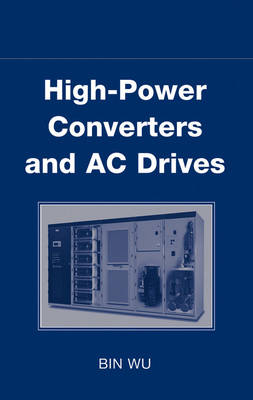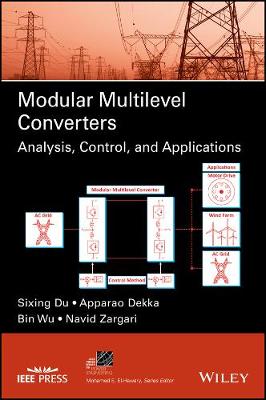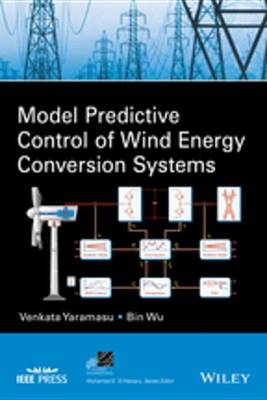IEEE Press Series on Power Engineering
1 primary work • 4 total works
Book 76
Power Conversion and Control of Wind Energy Systems
by Bin Wu, Yongqiang Lang, Navid Zargari, and Samir Kouro
Modular Multilevel Converters – Analysis, Control, and Applications
by Sixing Du, Apparao Dekka, Bin Wu, and Navid Zargari
An invaluable academic reference for the area of high-power converters, covering all the latest developments in the field
High-power multilevel converters are well known in industry and academia as one of the preferred choices for efficient power conversion. Over the past decade, several power converters have been developed and commercialized in the form of standard and customized products that power a wide range of industrial applications. Currently, the modular multilevel converter is a fast-growing technology and has received wide acceptance from both industry and academia. Providing adequate technical background for graduate- and undergraduate-level teaching, this book includes a comprehensive analysis of the conventional and advanced modular multilevel converters employed in motor drives, HVDC systems, and power quality improvement.
Modular Multilevel Converters: Analysis, Control, and Applications provides an overview of high-power converters, reference frame theory, classical control methods, pulse width modulation schemes, advanced model predictive control methods, modeling of ac drives, advanced drive control schemes, modeling and control of HVDC systems, active and reactive power control, power quality problems, reactive power, harmonics and unbalance compensation, modeling and control of static synchronous compensators (STATCOM) and unified power quality compensators. Furthermore, this book:
- Explores technical challenges, modeling, and control of various modular multilevel converters in a wide range of applications such as transformer and transformerless motor drives, high voltage direct current transmission systems, and power quality improvement
- Reflects the latest developments in high-power converters in medium-voltage motor drive systems
- Offers design guidance with tables, charts graphs, and MATLAB simulations
Model Predictive Control of Wind Energy Conversion Systems
by Venkata Yaramasu and Bin Wu
Model Predictive Control of Wind Energy Conversion Systems addresses the predicative control strategy that has emerged as a promising digital control tool within the field of power electronics, variable-speed motor drives, and energy conversion systems.
The authors provide a comprehensive analysis on the model predictive control of power converters employed in a wide variety of variable-speed wind energy conversion systems (WECS). The contents of this book includes an overview of wind energy system configurations, power converters for variable-speed WECS, digital control techniques, MPC, modeling of power converters and wind generators for MPC design. Other topics include the mapping of continuous-time models to discrete-time models by various exact, approximate, and quasi-exact discretization methods, modeling and control of wind turbine grid-side two-level and multilevel voltage source converters. The authors also focus on the MPC of several power converter configurations for full variable-speed permanent magnet synchronous generator based WECS, squirrel-cage induction generator based WECS, and semi-variable-speed doubly fed induction generator based WECS. Furthermore, this book:
- Analyzes a wide variety of practical WECS, illustrating important concepts with case studies, simulations, and experimental results
- Provides a step-by-step design procedure for the development of predictive control schemes for various WECS configurations
- Describes continuous- and discrete-time modeling of wind generators and power converters, weighting factor selection, discretization methods, and extrapolation techniques
- Presents useful material for other power electronic applications such as variable-speed motor drives, power quality conditioners, electric vehicles, photovoltaic energy systems, distributed generation, and high-voltage direct current transmission.
- Explores S-Function Builder programming in MATLAB environment to implement various MPC strategies through the companion website
Reflecting the latest technologies in the field, Model Predictive Control of Wind Energy Conversion Systems is a valuable reference for academic researchers, practicing engineers, and other professionals. It can also be used as a textbook for graduate-level and advanced undergraduate courses.



